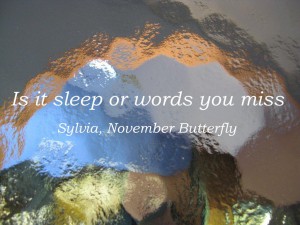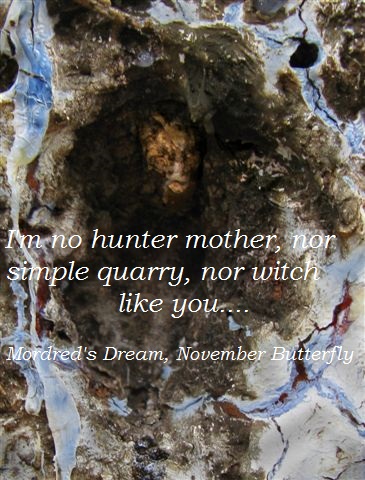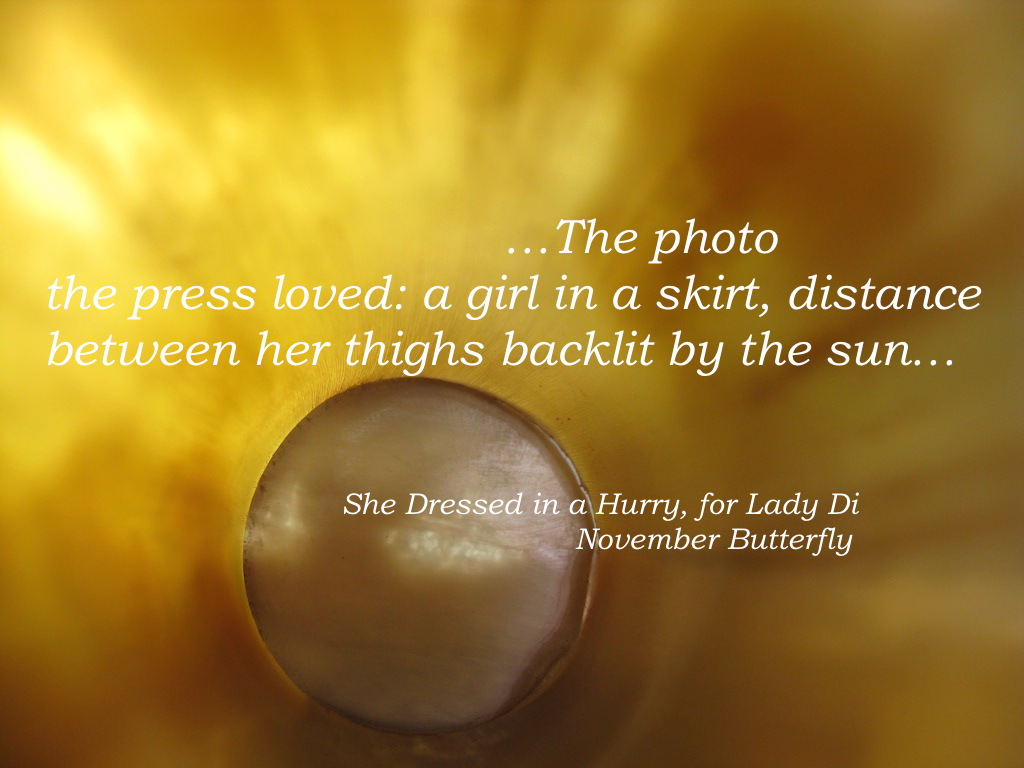In good company with many a girl poet of my generation, I remember (at the naïve age of 19) stepping out of the pristine order of Plath’s poetry and circling her life, which really meant hunting Ted, blaming Ted, for Sylvia’s destruction; if only he’d been faithful, if only he hadn’t burned her journals, think what else she’d have written, as if Sylvia didn’t have any vulnerabilities or failures, as if she belonged to all of us, women poets in particular, as if I personally knew, an attitude with an attendant voyeuristic hovering in the couple’s collective corona replete with light and distortions meant only for them.- Phantom Narratives and the Reel Picture (Feral Mom, Feral Writer)
Sylvia. Girl poets the world over continue to read Plath. My love for her work remains steadfast. When I became a mother, the particulars of her life story saddened me in new ways; that emotional metamorphosis served as the starting point for the poem Sylvia we are using as today’s writing countdown to publication prompt from November Butterfly (forthcoming from Saddle Road Press, November 1, 2014).
Today’s prompts are based on excerpts from the blog post Phantom Narratives and the Reel Picture (Feral Mom, Feral Writer):
- If you are female, writing, attracted to men, considering mothering or finding yourself a mother in a marriage, you will perhaps at some point feel there’s something to be gained by examining Sylvia’s life story. What if your lover, while courting you to core growth, fails in the end to alchemize your potential, but stills it somehow, stills you, or helps you on your way to still yourself? Or turn it around, what if you do the same to your lover, or worse, to yourself? How have you silenced yourself in the name of love? Or alternately, how has love propelled you past silence?
- Use this line from the poem Sylvia, “Is it sleep or words you miss, or neither?” to address Sylvia directly, to ask her your own list of questions. Or to address her about the earthly specifics of the particular life you enjoy that make incarnation worthy, spectacular, and/or difficult. What is Sylvia’s answer to the question, “Is it sleep or words you miss, or neither?”
- One of the exquisite metaphors for projected infidelity resides in this cinematic jewel from the film Sylvia (the version directed by Christine Jeffs, starring Gwyneth Paltrow as the poet and the devilishly handsome, pre-Bond, pre Dragon Tattoo Daniel Craig as the other poet, Hughes). Sylvia sits alone in a room partitioned by a piece of mottled glass behind which Hughes and a female friend wash dinner dishes. As the pair behind glass pass back and forth, you see what Sylvia sees: their bodies reduced to mottled chunks of color morphin
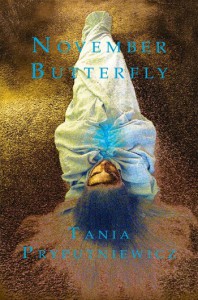 g out of their borders, overlapping, merging. Actually, you see Sylvia’s fear: where does her husband end and the woman begin? Use the visual image of the mottled glass as a starting point for your free write, projecting your own version of an instance from your own life. What is happening behind the glass?
g out of their borders, overlapping, merging. Actually, you see Sylvia’s fear: where does her husband end and the woman begin? Use the visual image of the mottled glass as a starting point for your free write, projecting your own version of an instance from your own life. What is happening behind the glass?
Write for twenty minutes without censor. Post your response in comments if inspired to do so.
Additional Links:
Full process backstory on writing Sylvia: Phantom Narratives and the Reel Picture
A partial version of the poem Sylvia was originally published by The Blood Orange Review: Crows bordered the seams of your leaving
Photo by Robyn Beattie.
December 2, 2015 update:
Read Milk and Bread, a poem by Alessandra Bava up at elimae.
- Consider additionally, as Bava does here, addressing the child/children of an iconic personality of your choosing in a letter poem.
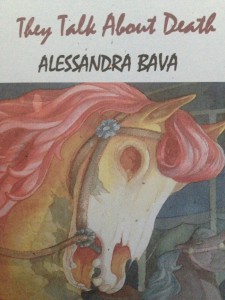 They Talk About Death, by Alessandra Bava (Blood Pudding Press Contest Winning Chapbook, 2014) contains the poem Milk and Bread as well as the title poem, They Talk About Death. In this poem, we witness a version of Plath and Sexton conversing.
They Talk About Death, by Alessandra Bava (Blood Pudding Press Contest Winning Chapbook, 2014) contains the poem Milk and Bread as well as the title poem, They Talk About Death. In this poem, we witness a version of Plath and Sexton conversing.
- Consider putting two of your iconics in conversation with one another. Try out a number of settings. As you write, consider the questions: What separates these two individuals? What binds them?
See also Poetry Rules (Alessandra Bava’s Blog)
Live Like a Mighty River (up at Letters of Note) from The Letters of Ted Hughes (Faber & Faber, 2009); a letter to son Nicholas.

